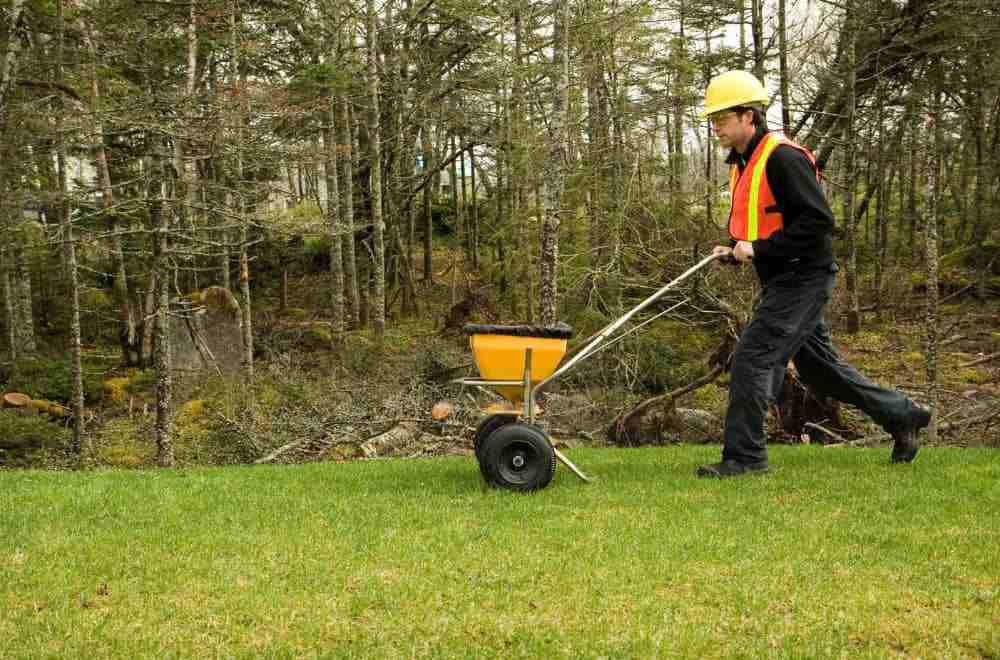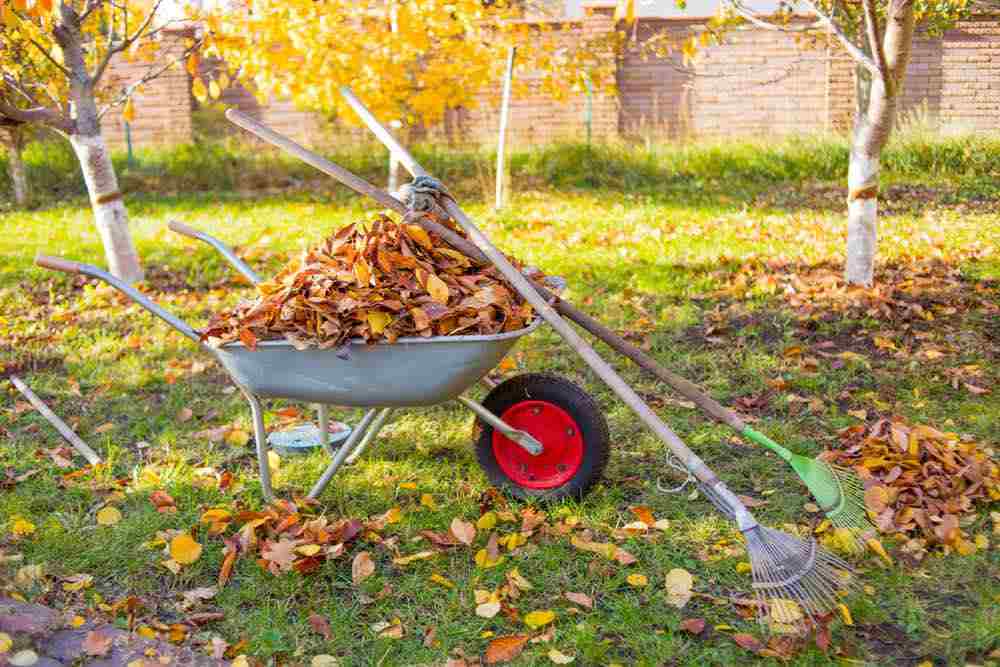As the vibrant hues of spring give way to the warmth of summer in Michigan, it’s time to transition your focus to the essential task of preparing your yard for the upcoming season. In this guide, we delve into the crucial aspect of waste removal to ensure your outdoor space thrives throughout the summer months. Effective waste management is not only about maintaining aesthetic appeal but also fostering a healthy environment for your plants and lawn. From clearing debris left by spring storms to addressing accumulated organic matter, this comprehensive overview will guide you through the waste removal essentials specific to Michigan’s unique climate. On this journey explore with A&B Junk, the necessary steps to create a clean, flourishing landscape that sets the stage for memorable summer gatherings and outdoor enjoyment. Ready your Michigan yard with these indispensable waste removal tips and embrace the beauty that summer brings to your outdoor haven.
1. Yard Waste Removal:
Michigan’s diverse climate means that yards often accumulate various types of organic debris, including grass clippings, leaves, and branches. Proper disposal of yard waste is not only essential for the aesthetics of your property but also for the health of the environment. Most municipalities in Michigan have specific guidelines for yard waste removal.
Start by familiarizing yourself with your local regulations regarding the disposal of yard waste. Many areas provide curbside pickup services for yard waste, while others may require residents to drop off their debris at designated locations. Some municipalities also encourage composting as an environmentally friendly way to manage organic waste.
Consider investing in a composting bin for your yard. Composting not only helps you manage organic waste but also produces nutrient-rich compost that can be used to enhance the soil in your garden. By following local guidelines and incorporating composting into your waste removal routine, you contribute to a healthier and more sustainable environment.
2. Bulk Item Disposal:
Summer is the perfect time for a thorough cleaning and decluttering of your outdoor space. This may involve getting rid of old furniture, appliances, or other large items that have accumulated over the years. Michigan municipalities often have scheduled bulk item pickup days, where residents can leave large items at the curb for proper disposal.

Before placing bulk items at the curb, check with your local waste management authority to confirm the pickup schedule and any specific guidelines for item placement. Some areas may require you to schedule a pickup in advance or provide additional information about the items being disposed of.
If your community doesn’t offer bulk item pickup services, explore alternative options. Many municipalities have drop-off locations or special events for the disposal of large items. Additionally, consider donating items that are still in good condition to local charities or organizations that accept second-hand goods.
3. Trash and Recycling:
Maintaining a clean and organized outdoor space involves proper management of everyday waste, including trash and recyclables. Start by inspecting your trash and recycling bins to ensure they are in good condition. Replace any damaged bins to prevent spills and keep your yard tidy.
Every community in Michigan may have slightly different rules when it comes to recycling. Check with your local waste management authority for specific guidelines on what can and cannot be recycled. Common recyclables include paper, cardboard, glass, metal, and certain types of plastic. Understanding and following these guidelines contribute to effective recycling efforts and reduce the overall waste footprint.
Encourage everyone in your household to participate in proper waste sorting. Consider setting up designated bins for recyclables and educating family members about the importance of recycling. Creating a recycling routine helps reduce the amount of waste that ends up in landfills, contributing to a more sustainable and environmentally conscious community.
4. Hazardous Waste Disposal:
Hazardous waste, such as old paint, chemicals, and electronic waste, requires special handling and should never be disposed of with regular household trash. Michigan municipalities typically have designated drop-off locations or events for hazardous waste disposal.
Before disposing of hazardous materials, gather them in a safe and secure location. Check with your local yard waste management authority in Michigan for information on the types of hazardous waste they accept and the proper procedures for disposal. Many communities host periodic hazardous waste collection events, providing residents with a convenient and responsible way to dispose of these materials.
Proper disposal of hazardous waste is not only a legal requirement but also crucial for protecting the environment and public health. Avoid pouring chemicals down the drain or throwing electronic waste in the trash, as these actions can have serious consequences for water quality and soil health.
5. Compliance with Local Regulations:
Michigan, like many states, has specific regulations governing waste disposal. These regulations are in place to protect the environment and public health. It’s crucial to stay informed about local waste removal regulations to avoid any potential fines or penalties. Municipalities often provide detailed information on their official websites or through local waste management offices.
Take the time to review and understand the regulations applicable to your area. This includes guidelines for the disposal of different types of waste, as well as any restrictions on specific items. Some communities may have restrictions on the use of certain disposal methods, such as burning yard waste. By adhering to local regulations, you contribute to a safer and more sustainable community.
6. Regular Maintenance:
Maintaining a clean yard is an ongoing effort, and regular waste removal is key to its success. Schedule routine maintenance sessions throughout the summer to keep your outdoor space in top condition. This includes regular mowing, weeding, and removing any accumulated debris.
Create a maintenance checklist that covers essential tasks such as checking and emptying trash and recycling bins, inspecting the yard for any potential hazards or waste buildup, and ensuring that your composting system is functioning correctly. Regular maintenance not only enhances the visual appeal of your yard but also promotes a healthier and safer environment for you and your family.
7. Professional Services:
For larger yards or extensive waste removal needs, consider hiring professional waste removal services. These services can handle bulk items, hazardous waste, and other materials that may require special handling. Professional waste removal ensures that your yard is thoroughly cleaned and adheres to all regulations.
Research local waste removal companies, read reviews, and inquire about their services. Some companies offer comprehensive solutions, including junk removal, yard waste disposal, and recycling services. Professional services not only save you time and effort but also guarantee proper disposal methods, contributing to a cleaner and more sustainable environment.
8. Educate and Involve Your Household:
Waste removal is a collective effort, and involving everyone in your household is essential. Educate your family members about the importance of proper waste disposal and recycling. Ensure that they understand the local guidelines and encourage their active participation.
Assign specific responsibilities for waste management tasks, such as taking out the trash, sorting recyclables, or maintaining the composting system. By fostering a sense of responsibility within your household, you create a more sustainable and organized waste removal routine.

9. Organize a Community Cleanup:
Collaborate with your neighbors to organize a community cleanup day. This collective effort not only strengthens community bonds but also enhances the overall cleanliness of the neighborhood. Coordinate with local authorities to arrange for proper waste disposal methods for the collected debris.
Community cleanups are an excellent opportunity to address larger waste removal projects, such as cleaning up public spaces, parks, or common areas. Consider involving local schools, community groups, or businesses to maximize participation and make a positive impact on the environment.
10. Mulch and Compost:
In addition to waste removal, consider incorporating mulching and composting into your yard maintenance routine. Mulching helps retain soil moisture, suppress weeds, and regulate soil temperature. Composting turns organic waste into nutrient-rich compost, which can be used to improve soil quality and support plant growth.
Invest in a quality mulch and composting system. Use grass clippings, leaves, and kitchen scraps to create nutrient-dense compost for your garden. Mulch around trees, shrubs, and flower beds to provide a protective layer that conserves moisture and promotes plant health. By integrating these sustainable practices, you contribute to the overall health and vitality of your Michigan yard.
Conclusion:
In conclusion, optimizing your Michigan yard for the summer months requires a strategic approach to waste removal, ensuring both environmental sustainability and a visually pleasing outdoor space. The waste removal essentials outlined provide a comprehensive guide for residents, emphasizing the significance of proper disposal methods and the utilization of eco-friendly alternatives. By incorporating these practices, homeowners contribute to the preservation of Michigan’s natural beauty and ecosystem. Additionally, a well-maintained yard enhances the overall quality of life, fostering a welcoming atmosphere for outdoor activities. As summer beckons, implementing these waste removal essentials not only addresses cleanliness but also promotes a sense of community responsibility. Ultimately, by adhering to these guidelines, Michigan residents can relish the warmth of summer while nurturing a harmonious coexistence with nature.




